Related Research Articles
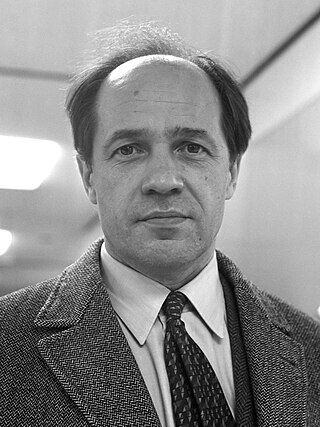
Pli selon pli is a piece of classical music by the French composer Pierre Boulez. It carries the subtitle Portrait de Mallarmé. It is scored for a solo soprano and orchestra and uses the texts of three sonnets of French symbolist poet Stéphane Mallarmé and single lines from two of his other poems. At over an hour, it is Boulez's longest work.

Stuart Oliver Knussen was a British composer and conductor.
Dame Judith Weir is a British composer serving as Master of the King's Music. Appointed in 2014 by Queen Elizabeth II, Weir is the first woman to hold this office.

Geoffrey Alan Burgon was an English composer best known for his television and film scores. Among his most recognisable works are Monty Python's Life of Brian for film, and Tinker Tailor Soldier Spy and Brideshead Revisited for television, the latter two earning Ivor Novello Awards in 1979 and 1981 respectively. He also won BAFTAs for his themes for the remake of The Forsyte Saga and Longitude.
Anthony Gilbert was a British composer and academic, long associated with the Royal Northern College of Music. He also taught for extended periods as head of composition at the New South Wales State Conservatorium. His works, many of them for larger chamber ensembles, were published by Schott and University of York Music Press. Several of them were written for particular musicians, who performed and recorded them. He wrote a memoir, published in 2021.
Louis Calabro was an Italian American orchestral composer.
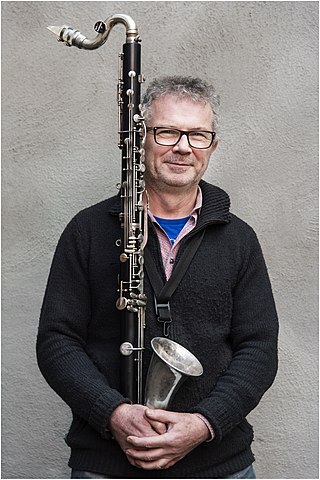
Peter Vermeersch is a Belgian composer, clarinet player and producer.
Cheryl Frances-Hoad is a British composer.
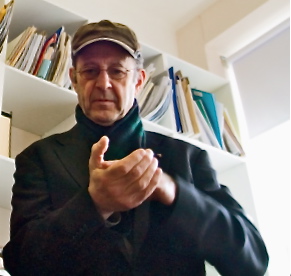
Radio Rewrite is a 2012 musical composition by the American composer Steve Reich, inspired by two songs by the British rock band Radiohead: "Jigsaw Falling into Place" and "Everything in Its Right Place". It is the first time that Reich has reworked material from western pop or rock music.
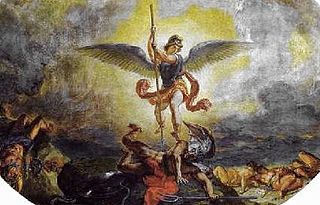
The Company of Heaven is a composition for soloists, speakers, choir, timpani, organ, and string orchestra by Benjamin Britten. The title refers to angels, the topic of the work, reflected in texts from the Bible and by poets. The music serves as incidental music for a mostly spoken radio feature which was first heard as a broadcast of the BBC in 1937.
Sunset Strip is an orchestral composition in three movements by the American composer Michael Daugherty. The piece was composed in 1999 and premiered January 7, 2000 at the Ordway Center for the Performing Arts in Saint Paul, Minnesota, with conductor Hugh Wolff leading the Saint Paul Chamber Orchestra.
Caught in Treetops is a concerto for solo violin and chamber ensemble by the British composer Charlotte Bray. The work was commissioned by the Birmingham Contemporary Music Group and Sound and Music. It was first performed on 14 November 2010 at the CBSO Centre, Birmingham by the violinist Alexandra Wood and the Birmingham Contemporary Music Group under conductor Oliver Knussen. The piece is dedicated to the Birmingham Contemporary Music Group.
Fire Burning in Snow is a composition for mezzo-soprano solo and chamber ensemble by the British composer Charlotte Bray. The work was commissioned by the Birmingham Contemporary Music Group with the support of individual donors in memory of the arts administrator Jack Phipps. It was first performed on June 18, 2013 at the Aldeburgh Festival by mezzo-soprano Lucy Schaufer and the Birmingham Contemporary Music Group. The piece is set to three poems by Nicki Jackowska. Bray dedicated the composition to Jackowska and to the memory of the composer Jonathan Harvey.
The Ogre Lover is a 2007 composition for string trio by the British composer Cheryl Frances-Hoad.
Guide to Strange Places is an orchestral composition by the American composer John Adams. The work was commissioned by the Amsterdam broadcasting company VARA, the BBC Symphony Orchestra, and the Sydney Symphony Orchestra. It was given its world premiere by the Netherlands Radio Philharmonic Orchestra under the direction of Adams at the Concertgebouw, Amsterdam, on October 6, 2001.
Kraft is a composition for solo ensemble, electronics, and orchestra by the Finnish composer Magnus Lindberg. The work was commissioned by the Helsinki Festival and was first performed on September 4, 1985 by the Toimii ensemble and the Finnish Radio Symphony Orchestra under the direction of Esa-Pekka Salonen. The piece was awarded the International Rostrum of Composers in 1986 and won the Nordic Council Music Prize in 1988.
The Concerto for Piano and Orchestra is a composition for solo piano and orchestra by the Polish composer Witold Lutosławski. The music was commissioned by the Salzburg Festival. It was first performed at the festival on August 19, 1988 by the pianist Krystian Zimerman and the Austrian Radio Orchestra under the direction of the composer. Lutosławski dedicated the piece to Zimerman.
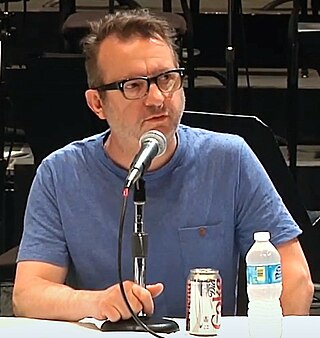
Blood on the Floor is a suite in nine movements composed for orchestra and jazz trio by Mark-Anthony Turnage. It was composed over a span of three years (1993–1996) after a commission from the Ensemble Modern—a German music group—to produce a piece for an evening jazz event in 1994. After the performance, Turnage expanded the piece into a larger nine-movement suite. During this period of composition, Turnage's brother Andrew died of a drug overdose, shaping the music greatly. As a result, drug culture is one of the main themes in the suite. Blood on the Floor also draws influences from the paintings of Francis Bacon and Heather Betts; the suite's title is an adaptation of Bacon's painting Blood on Pavement.
Last Man Standing is a song cycle for baritone and orchestra written in 2018 by the British composer Cheryl Frances-Hoad and set to a text by Tamsin Collison. The work was commissioned by BBC Radio 3 and was first performed by the baritone Marcus Farnsworth and the BBC Symphony Orchestra conducted by Martyn Brabbins at the Barbican Centre on 30 November 2018.
References
- 1 2 Frances-Hoad, Cheryl (2005). The Glory Tree: Program Note. Retrieved August 7, 2015.
- 1 2 Clements, Andrew (August 25, 2011). "Frances-Hoad: The Glory Tree; The Ogre Lover; Melancholia, etc – review". The Guardian . Retrieved August 7, 2015.
- 1 2 Witherden, Barry (January 20, 2012). "The Glory Tree". BBC Music Magazine . Retrieved August 7, 2015.
- ↑ Hewett, Ivan (June 28, 2011). "Cheryl Frances-Hoad: The Glory Tree; other chamber works, CD review". The Daily Telegraph . Telegraph Media Group . Retrieved August 7, 2015.